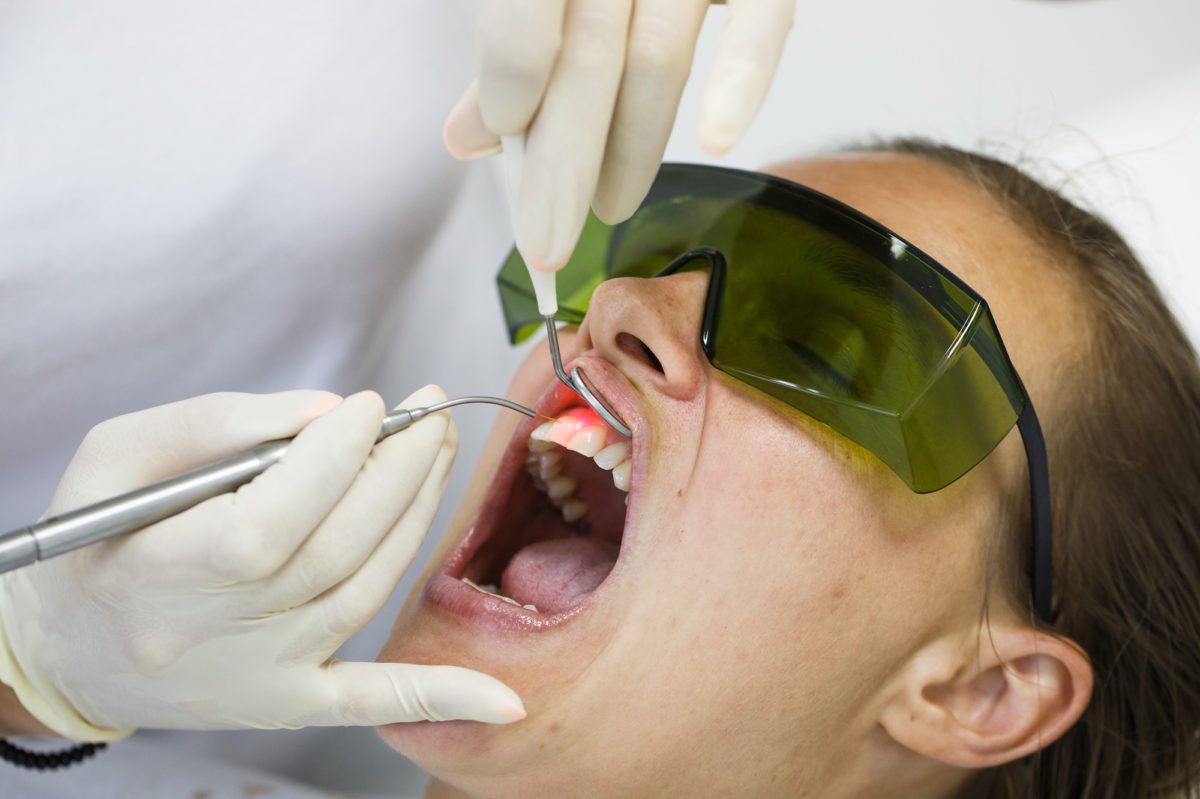
When most people think of the dentist, they imagine drills and metal tools. This can cause some people anxiety or even encourage people to skip their dental cleanings because they find the tools unpleasant.
These days, lots of dental issues can be treated with laser dentistry instead of those metal tools. But what is laser dentistry?
What to Know About Laser Dentistry
As the name implies, laser dentistry uses lasers to perform some types of dental work. Lasers are a kind of focused light with many useful applications in science, medicine, and dentistry.
The benefits of laser dentistry are numerous, but here are five to consider when you make your next dental appointment.
1. Reduced Dental Anxiety
For many people, dental anxiety comes from the sounds and sights of dental tools, including drills and scalers. Laser dentistry can treat a lot of the conditions that use these tools, eliminating the source of the anxiety.
Laser dentistry can also make dental appointments feel less scary for kids. Plaque removal with lasers is quiet and doesn’t cause the same pressure and scraping sensations as traditional dental tools. Eliminating excess sensation can make the experience easier for young people or those with sensory issues.
2. Reduced Bleeding and Faster Healing Times
A huge benefit of laser dentistry is the reduction in bleeding and swelling in a patient’s gums, which lets the patient heal faster from treatments.
Traditional dental tools are sharp and can cause small cuts and swelling even in the best-case scenario. A laser uses light energy to gently break up the plaque and tartar, which is a process that is much gentler on the teeth and gums.
Lasers are extremely precise and can seal off blood vessels as the dentist works, reducing bleeding. The precision also reduces how much damage is done to tissues surrounding the treatment area. Less damage means faster healing!
3. Hard Tissue and Soft Tissue Lasers
There are two main types of lasers used in laser dentistry: lasers for hard tissue like tooth enamel and lasers for soft tissue like gums.
Erbium YAG lasers are used for hard tissues like teeth and bones, which makes them useful for dental surgeries like tooth implants. Diode lasers are used for soft tissue applications, like treating gum disease or reshaping the gums.
Diode lasers also kill bacteria and seal off nerve endings. This makes treatments with soft tissue lasers extremely hygienic and comfortable.
4. Cold Sore Treatments
Laser dentistry isn’t limited to teeth; you can get cold sores treated with lasers too. Lasers light energy destroys the local virus that causes cold sores to form. Patients who undergo laser therapy can prevent or diminish ulceration from occurring through photo-biostimulation technology. They can also help speed up the healing process for sores that have already erupted.
5. Decreased Temperature Sensitivity
Dental lasers can help with temperature sensitivity by sealing up any gaps or holes in your tooth enamel. This protects the nerves in your teeth from the extreme temperatures that cause discomfort.
Try It For Yourself
If you’re interested in trying laser dentistry, make an appointment to come see us today! Whether you’re a new patient or you’ve been with us for years, laser dentistry could benefit you.


